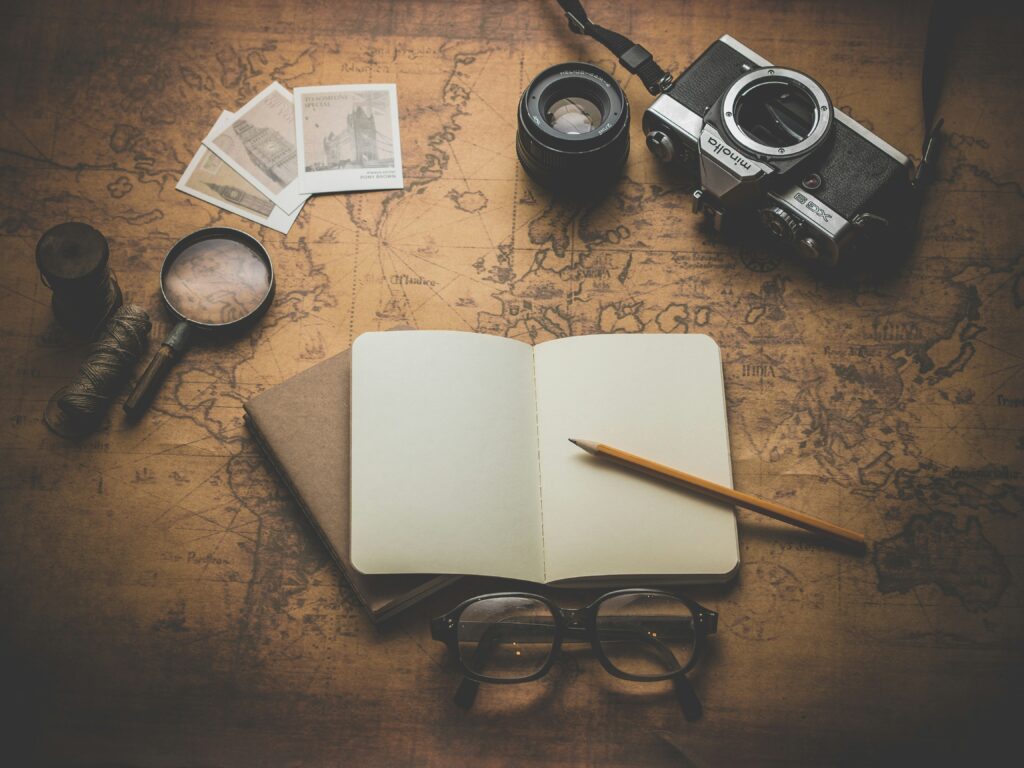“You should write a book!”
Does that sound familiar? Perhaps your friends have often told you that they want to read more of your dinner-party stories. Maybe your family want to hold on to what you know of your shared history.
But sitting down to write about it in a life story is a daunting prospect. A whole life to recall … When decades of laughter and tears, challenges and triumphs, loves and losses have been experienced, unraveling the vast tapestry of your life can seem like an impossible task.
Some of us stall there, responding to those friends and family members with “But I couldn’t possibly write my life story!” The task feels just too difficult, but consider this: giving up there would deprive the world of another piece of its puzzle. Each and every memoir written adds a little color to our understanding of other people and our world, and the world—particularly your nearest and dearest—needs yours.
So, who you gonna call?
You need an expert. Working with an autobiography-writing service such as LifeBook Memoirs, the world-leader in its field, will ensure that writing your book is a comfortable, simplified process and one that allows you to enjoy the experience without having to grapple with writer’s block! We’ve been creating beautifully crafted autobiographies for people around the world for more than twelve years, giving hundreds of families the chance to preserve and treasure their loved ones’ stories.
But where do you begin if you’re thinking of writing your life story? Whether you’re jotting down memories yourself or working with the professionals, a few key insights can help you shape your story and make the process even more rewarding.
How to start writing your life story
Even with a LifeBook Memoirs interviewer taking you though the process step by step, some preparation and forethought will be key to hitting the ground running. Creating a timeline of key events in your life, and breaking it down into sections or eras, will help you immerse yourself in a period of time and enable you to delve into detail and recall more than perhaps you think you remember.
Family history
For many of our authors, one of the principal motivators for writing their autobiography or memoir is to tell the story of their family, and this is often a great place to start. It sets the scene for your own story and gives you a way to share what you know of your parents and grandparents (and beyond, if you can!) and to explore your heritage. This part of recording your story for posterity will help your readers better understand you—after all, how we think, feel, and behave is often shaped by our backgrounds and upbringing.
So, consider these questions:
- Where did your ancestors come from? What do you know of their struggles and successes? How did their heritage influence them?
- How did your grandparents and parents meet? Were they from different cultures, or did they share a similar background?
- What did they do for a living? (Remember that many professions from the past no longer exist, so you may need to explain to your reader what their jobs entailed.)
- What do you recall of their personalities? (Perhaps your grandfather was a tough, hardworking man with a wicked wit, or your mother was a terrible cook with a glamorous sense of style …)
- How did their generation differ from yours? Was this ever a cause of friction?
Studies have shown that sharing family history can be good for building stronger relationships within families and can even improve children’s ability to take on challenges in the future. For the storyteller, it can help build stronger familial connections, make them feel less lonely, and improve self-esteem. Starting with family history, then, is the perfect way to build comfort and confidence in telling your own story, conjuring up the right frame of mind in which to enter your earliest personal memories.
Childhood and growing up
Now that you’ve set the scene, it’s time to enter the key player—you! We’re writing a book about your life, after all.
It’s very common to feel more than a little self-conscious when talking about yourself at great length, so, if it helps, consider what you could say about your young self as a character. Doing so can be a great way to ease the awkwardness. What did young Jack or Marie experience of the world they arrived in? Paint a picture for your readers:
- Where did you grow up? What was your neighborhood like?
- What modern conveniences did or didn’t you have access to (i.e., a telephone, a car, a washing machine, or even plumbing)?
- Did you have siblings? What was your relationship with them like as children (and has that altered as you’ve aged)?
- Were you an indoors or outdoors kid? What games did you play? Who were your friends?
- How would you describe your parents’ approach to parenting? How did you respond to their authority?
- Did your parents’ marriage teach you anything that you brought into your adult life?
- Did religion play a part in your upbringing?
- What kind of student were you? What piqued your curiosity at that age, and what did you struggle to grasp?
When speaking of your childhood, indulge in the nostalgia—it’s actually good for you! Dwelling on fond times releases dopamine and can promote healthy ageing.
Teenage kicks
The teenage years can sometimes be overlooked as being about little more than high school and trying to reach college or a particular career, but these years can be a lot of fun to recall. It’s always great to remind your grandkids that you were once young and that many of the things they think are new and rebellious, Grandma or Grandpa did before them …
Here are some questions to mull over:
- What music did you listen to? Many genres of music from the 1950s, 1960s, and 1970s—some brand-new at the time—came with their own identities, cultures, and even associated politics. Styles of clothes or even hair were often used as the shorthand by which fellow rock ‘n’ rollers, hippies, and punks recognized each other. How did your taste in music influence your sense of style and/or self?
- Who was your first love and your first heartbreak? What do you remember of that time and those feelings?
- Who was in your social circle, and what did you do when you hung out together? What did a “good party” mean to you (this educational film advised 1950s teenagers on hosting gatherings, but was this really what teenagers were doing)?
- What did you find challenging or awkward about being a teenager? Did your relationship with your family change during that time?
- What social changes did you experience? Did you attend protests? Perhaps you remember the end of the Jim Crow laws or feared being drafted to Vietnam.
The last question in this list is always important and interesting to answer but is sometimes overlooked when people think about writing their life stories. First-hand accounts of the events you’ve lived through will be hugely significant in connecting your younger readers with the progress that was made before them. Personal memories of public facts—whether they be conflicts, oppressive laws, or prominent prejudices that made life difficult—should be shared and explained to deepen understanding and foster empathy for historic and generational traumas.
Making your way in the world
As your friends and family see you in later life, they may remember only the achievements that brought you to this point—but often, that isn’t the whole story. Tireless work and frequent failures are behind some of the biggest success stories, along with the supporters and background figures who remained behind the scenes. It’s important to share who was there with you along the way; telling your readers about those who’ve supported you may inspire them to emulate (or avoid!) those relationships in their future.
Consider:
- Did you go to college? Did it prepare you for your aspirations or had they changed by the time you graduated?
- If you didn’t go to college, what was your plan after high school?
- How did you feel about having the freedom to decide the direction of your life? Were you excited, daunted, or unsure about the path ahead?
- Who was at your side at this time? Were there any prominent relationships or friendships that were part of your life at this age?
- How did you see your life story evolving from there? Did this picture come to fruition, or did your path take unexpected turns?
If you still need help writing your story, click here for more ideas to spark memories.
Never too old or too young
Having read this far and decided that you’re definitely keen to write your life story, you might still be hesitant to start. Why would you when you’ve got decades ahead and plenty of your life still to live?
Don’t let that thought stop you! None of us know exactly how much time we have, and, if writing your life story matters to you, there’s really no better time to start than now. Our authors have been known to write their autobiographies in stages, returning to us to write Volume Two and even Three … The benefit, of course, of writing your memoir in midlife is that you can spend more time on each era of your life thus far, mining them for as much detail and color as possible.
Likewise, you’re never too old. Some of our authors have been over a hundred years old but still as vital and engaged as ever. Our team members are well equipped to work with customers who may have sight, hearing, or fine-motor issues, so your autobiography will be in safe, professional hands with LifeBook Memoirs.
If you’ve been thinking about writing your autobiography and you now feel ready to start, get in touch today. We’re excited to speak with you!
Written by Isabella Samuels, LifeBook Memoirs editor




